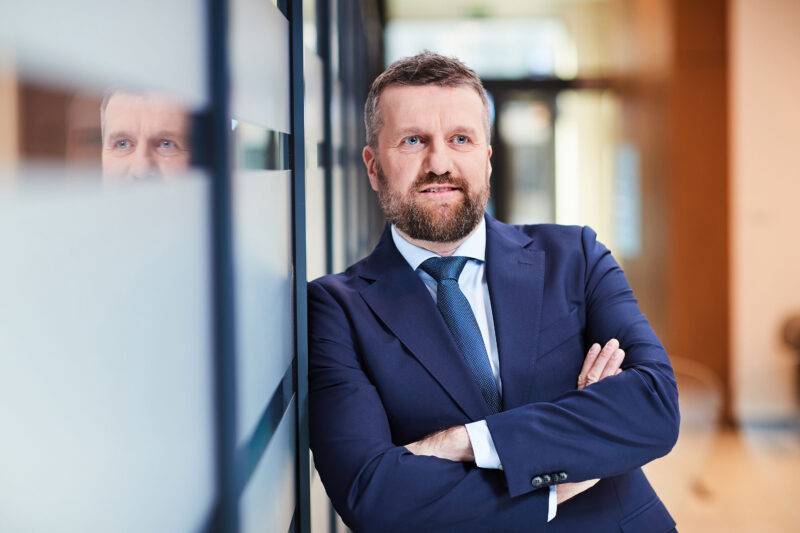- In 2023, Poland experienced 80,000 cyberattacks (an increase of 100% compared to 2022).
- In 2024, the number of attacks in Poland may exceed even 100,000.
- The government, military, and critical infrastructure sectors are the most threatened.
For the past two years, Poland, along with Ukraine, has been a prime target for hacking groups who want to use cyberspace as a new battlefield. This year, the number of attacks may exceed the historical record of 100,000. Cybercriminals are attacking the critical infrastructure of the state, information systems, wanting to sow unrest and disrupt societal life.
–Therefore, it is necessary to exercise extreme caution and make use of the best security and preventive measures. Otherwise, there will be even more such attacks – warns Wojciech Głażewski, director of Check Point Software Technologies in Poland.
The cyber war continues, and the FBI has uncovered a group of Russian hackers attacking NATO members.
Recently, this was confirmed by the US Government, revealing a group of agents from the Russian intelligence service GRU (Unit29155) that organized cyberattacks on Ukrainian state institutions before the Russian invasion in 2021 and later attacks on institutions and infrastructure of NATO countries supporting Ukraine, including Poland. Information from the FBI indicates that many ransomware attacks were carried out on Polish and Ukrainian transport and logistics companies. The US State Department announced a reward of up to $10 million for information leading to the identification and location of the members of the GRU cyber team. Interpol was also alerted to assist in tracing the suspects.
–We know that two groups are delegated, created by Russian GRU, to conduct cyberattacks on Poland. Water and sewerage infrastructure, energy, government and local administration are the main directions of cyberattacks – confirmed by Deputy Prime Minister and Minister Krzysztof Gawkowski on the X portal.
Experts from Check Point warn that businesses that are seemingly unrelated to armed conflicts may become targets due to the actions of hackers linked to one side.
According to the latest observations and analysis, so-called hacktivists (hackers associated with countries) are increasingly targeting government agencies, hospitals, rescue centers, and critical infrastructure such as communications, finance, or transport. Cyberwar involves not only DDoS and defacements (attacks that change the appearance of a website) but also much more dangerous attacks that can paralyze entire cities, or even countries. Examples include attacks on energy, water, and communication networks, which were a key element of the battle in the Russo-Ukrainian war.
The increase in the number of cyberattacks on Poland’s critical infrastructure is, according to the Government’s Plenipotentiary for Cybersecurity and Digital Minister Krzysztof Gawkowski, one of the most important threats our country faces. In 2023, the number of attacks increased by 100% y/y to 80,000.
Check Point analysts indicate that the current number of attacks on Polish organizations is around 2,000 per week. The government and military infrastructure sector alone repels nearly 1,930 attacks weekly.
–These are key enterprises that form the fundamental pillars of the organization of any state. That’s why there is such a strong interest in these sectors – underlines Wojciech Głażewski, the director of Check Point Software in Poland.
In this context, the document published by the National Security Bureau, containing recommendations on national security strategy, is important. The study includes a wide range of actions aimed at enhancing security in the civil and military spheres. It also includes elements of technology policy, cybersecurity and information security, i.e., resilience to cyber-information operations and propaganda.
Cyberattack: The Question is Not “If,” but “When”
The global digital infrastructure is becoming increasingly complex, and so are the methods of attacks. Ranging from sophisticated data thefts to taking over critical infrastructure – cyberwar is becoming more dangerous. Attacks on the critical infrastructure of the US, which had ties to conflicts in the Middle East, show that no geographical border is capable of protecting against digital attacks.
With each passing day, it becomes ever more evident that companies must adopt a proactive stance towards cyber threats. Cybersecurity is not just about data protection but also about protection from being a pawn in a global war game. In the age of cyber war, every company must be prepared for an attack, because the question is not “if,” but “when” it will become a target.
Source: https://managerplus.pl/polska-na-celowniku-cyberprzestepcow-w-2024-r-liczba-atakow-moze-przekroczyc-100-tys-16752
